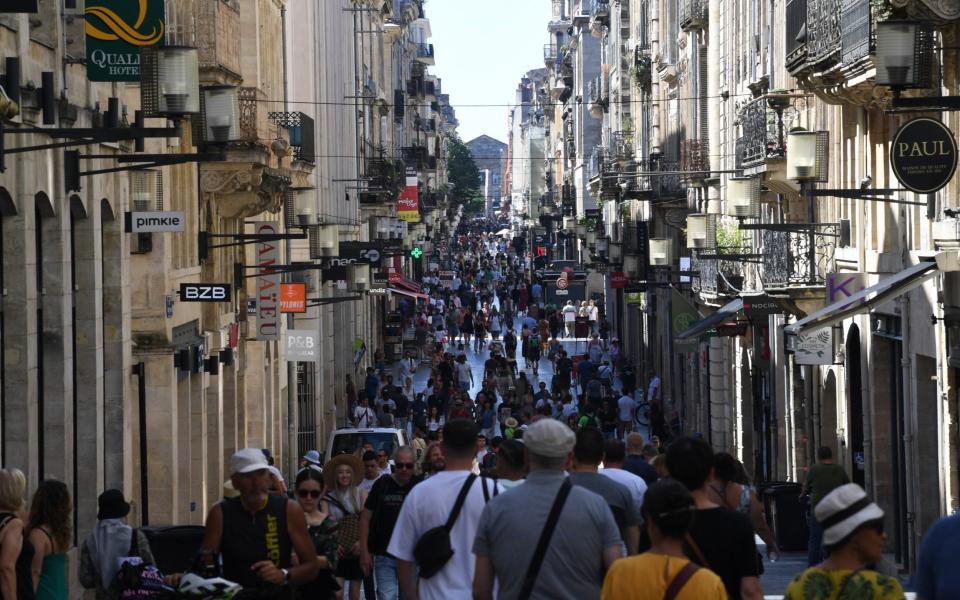France to fine shopkeepers who use air conditioning with the door open

French shopkeepers will be fined hundreds of euros for using air conditioning with the door open or leaving illuminated signs on at night under radical plans to ration energy this winter.
Agnès Pannier-Runacher, minister of energy transition, set out the proposals as part of a crackdown on businesses to reduce power usage over fears that Vadimir Putin will shut down gas supplies to the Continent.
Retailers that fail to shut the door when using air conditioning will be fined €750 (£638), while running an illuminated sign between the hours of 1am and 6am will attract a €1,500 penalty.
The plans are part of France’s “energy sobriety plan” to reduce dependence on Russia, which is has the power to cause havoc across Europe if it shuts off gas supplies this winter. Emmanuel Macron wants to cut energy consumption by 10pc by 2024.
In an interview with Le Journal du Dimanche, Ms Pannier-Runacher said that orders to force people to work from home and drive 10 km/h slower would not be imposed.
Working from home to save fuel is “a subject that is on the table”, Ms Pannier-Runacher said, but suggested that any advice is likely to be voluntary.
She said: “I expect professional organisations to make recommendations to their members based on each situation.
“[And] if their employees drive slower on the highway, they save fuel.”
Energy rationing in France this winter has been on the cards for several months as the country weans itself off supplies from Russia.
Last month Catherine MacGregor, chief executive of Engie; Jean-Bernard Lévy, who heads up EDF; and Patrick Pouyanné, chairman of TotalEnergies, urged the public not to wait until the winter to begin reducing their consumption.
They said: “The best energy is the energy we do not consume. Collectively, we must act on energy demand by reducing our consumption in order to give ourselves more room to manoeuvre.
“Taking action this summer will allow us to be better prepared to face the next winter and in particular to preserve our gas reserves.
“We are therefore calling for awareness and collective and individual action so that each of us - each consumer, each company - changes his or her behaviour and immediately limits his or her consumption of energy, electricity, gas and oil products.”
Ms Pannier-Runacher raised the possibility of changing energy prices based on the time of day.
She said: “[The French public] need to be better informed of their consumption by energy companies. Almost all French people have meters that allow them to know their electricity consumption in real time, but only 15pc use them.
“It is also necessary to update the rates that encourage sobriety. If I do my washing machine after 10pm or before 8am, I will relieve the network and have to see it in my wallet.”

 Yahoo Finance
Yahoo Finance